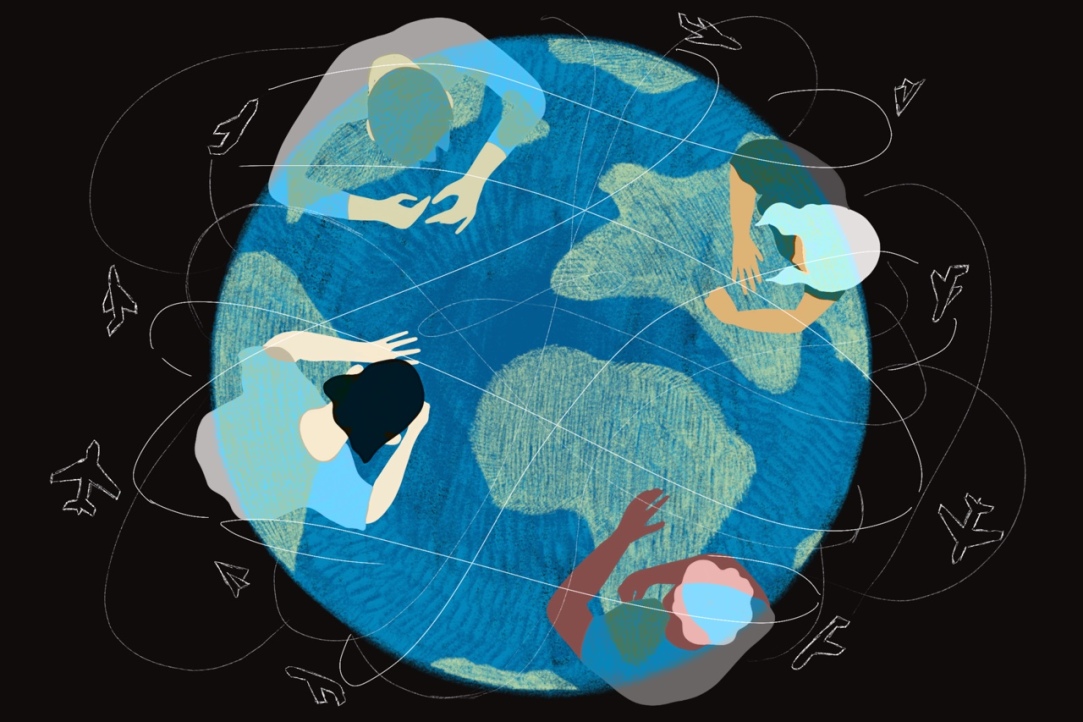HSE University to Reward Students Who Write Their Thesis Using AI

HSE University has launched a competition for solutions using artificial intelligence technology in theses work. The goal of the competition is to evaluate how students use tools based on generative models in their 2024 graduation theses (GT).
Students of all bachelor's and master's programmes at HSE University will be able to demonstrate their skills in using neural networks to solve complex problems. The authors of GT will have to describe in detail which AI tools were used in their work, what tasks were set and whether they were solved.
For most students, the use of artificial intelligence is already part of the educational process. According to a recent survey of the HSE University Online Campus, almost 43% of students already use AI in their work: 56% use it to prepare reports, 33% employ it for summaries, and 29% use it for essays.
HSE University Vice Rector Sergey Roshchin notes that the university is continuously interacting with generative models in the educational process, and is convinced that these opportunities can and should be used.

Sergey Roshchin
‘Artificial intelligence and generative models are new tools that open up multiple opportunities for solving analytical and creative problems. A modern specialist should master these tools and develop skills in the sphere of artificial intelligence along with expertise in their subject area. We can say that, in the near future, a modern specialist should be able to "count, read, write, and draw" with the help of artificial intelligence; this is becoming part of the professional skills set. And this applies to all areas of education. Our university is currently developing various forms of education in partnership with artificial intelligence. This is implemented both in teaching disciplines that train students to work with the capabilities of artificial intelligence, and in encouraging and teaching its use in students’ projects and theses.’
The theses will be assessed by an expert commission consisting of teachers and researchers from HSE University. The decision will be based on various criteria, including the level and complexity of the problems being solved, as well as the ethics and practicability of using AI.
Three competition winners will receive scholarships (if they continue their studies in master's or doctoral programmes) and will have the option to take part in intensive courses on artificial intelligence at the expense of the university.
More information about the competition can be found here (in Russian).
See also:
International Competition of Short Videos about Cities Is Underway
The Moscow City Tourism Committee and HSE Art and Design School invite young directors, animators, cameramen, and other authors working with video to participate in the International Competition of Short Videos about Cities. The contest is organised on the platform of HSE Art and Design School and the Creative City Project of the Institute of Creative Industries in the framework of the ‘Territory of the Future’ Moscow forum and festival.
Reinforcement Learning Enhances Performance of Generative Flow Networks
Scientists at the AI Research Centre and the AI and Digital Science Institute of the HSE Faculty of Computer Science applied classical reinforcement learning algorithms to train generative flow networks (GFlowNets). This enabled significant performance improvements in GFlowNets, which have been employed for three years in tackling the most complex scientific challenges at modelling, hypothesis generation, and experimental design stages. The results of their work achieved a top 5% ranking among publications at the International Conference on Artificial Intelligence and Statistics AISTATS, held on May 2-4, 2024, in Valencia, Spain.
‘I Came Up with the Idea to Create an Application Useful for Practicing Physicians’
Dmitry Ryabtsev, a 2024 graduate of the master's programme at the HSE Faculty of Computer Science, created an AI-powered software service for ophthalmology during his two years of study. This product is now entering the market, and its developer plans to participate in establishing a working group on software engineering for medical applications at the HSE Faculty of Computer Science, with the goal of promoting more genuinely useful domestic projects. In an interview with HSE News Service, Dr Ryabtsev shared his story of how a professional doctor turned into a programmer.
Season Eight of HSE CREATIVE OPEN Competition Begins
HSE CREATIVE OPEN international online competition of the HSE Art and Design School opens the summer season featuring new categories: ‘Visual Research,’ ‘Game Design,’ ‘Motion Design,’ ‘Poster,’ and ‘Digital Product.’
HSE University and Sber Conduct Foresight in Artificial Intelligence
HSE University, in collaboration with Sber, have conducted a foresight study on artificial intelligence (AI). Its early results were discussed by the participants of a strategic foresight session on exploratory research in AI, held at the Coordination Centre of the Russian Government, headed by Deputy Prime Minister Dmitry Chernyshenko. The results from the foresight study will inform the Unified Research and Development Programme in the Field of AI.
White Papers of AI Conformity Assessment Published on HSE University Website
The Russian Technical Committee for the Standardization of ‘Artificial intelligence’ (TC164), together with the Chamber for Indo Russo Technology Collaboration and the RUSSOFT Non-profit Partnership of Software Developers, has published new White Papers related to Artificial Intelligence Conformity Assessment. It reflects the approaches to the standardization and ethical regulation of AI technologies in two pilot industries — healthcare and agriculture.
Space for Collaboration in Artificial Intelligence
The HSE Laboratory of Artificial Intelligence for Cognitive Sciences (AICS) has launched regular seminars, offering students and scientists from various universities and research centres the opportunity to share their latest research and discuss the most recent developments in artificial intelligence in a friendly and constructive atmosphere. The first seminar was held on May 15.
Scientists Propose Star-Shaped Diffusion Model
Scientists at the AI Research Centre and the Faculty of Computer Science at HSE University, the Artificial Intelligence Research Institute (AIRI), and Sber AI have come up with novel architecture for diffusion neural networks, making it possible to configure eight distinct types of noise distribution. Instead of the classical Markov chain model with Gaussian distribution, the scientists propose a star-shaped model where the distribution type can be selected and preset. This can aid in solving problems across various geometric modalities. The results were presented at the NeurIPS 2023 conference.
HSE Scientists Leverage AI to Accelerate Advancement of 5G and 6G Wireless Communication Systems
The HSE Artificial Intelligence Centre has developed software for modelling radio channels in 5G and 6G wireless networks, based on ray tracing and machine learning techniques. Their software solutions enable modelling radio wave propagation between transmitters and receivers and can convert ray tracing data into a frame sequence format, configure and train neural networks based on this data, and subsequently save the trained models.
‘Like Electricity, AI Can Bring Incredible Benefits’
Developments in the field of artificial intelligence are gradually taking over the world. AI has the potential to bring incredible benefits to the global economy and our quality of life, but it also creates new challenges. Panos Pardalos, Professor at the University of Florida, Academic Supervisor of the Laboratory of Algorithms and Technologies for Networks Analysis (Nizhny Novgorod), covered these issues, along with other related topics, in his recent report.


